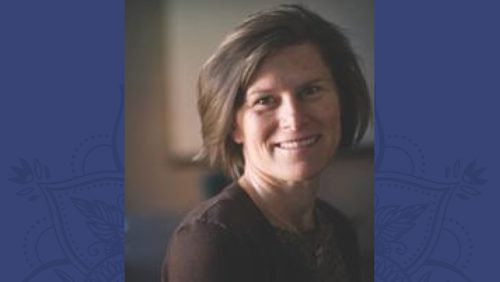
Anna Durbin Faculty Spotlight
“Vaccine development will be critical.”
Dr. Anna Durbin, a renowned professor jointly appointed in International Health at the Bloomberg School of Public Health and in Infectious Diseases at the Johns Hopkins School of Medicine, has dedicated her career to studying viral diseases and early vaccine development. With a particular focus on dengue, an endemic mosquito-borne illness in India, Dr. Durbin emphasizes the critical importance of vaccine development in combating the growing challenges posed by this disease.
Dengue poses a significant burden on hospitals in India due to a lack of accessible vaccines, compounded by factors such as climate change, high population density, and increased international travel. Dr. Durbin explains, “Wherever you have a large population, mosquitoes, and a warm climate, the conditions for dengue transmission are ideal. This is precisely what we are observing in India.”
India, projected to surpass China as the most populous country, will experience a surge in dengue cases unless there is a major vaccine initiative. Dr. Durbin highlights the escalating number of cases over the years, leading to a surge in critically ill patients that overwhelms the healthcare system. She firmly believes that a dengue vaccine can have a transformative impact on public health, particularly in a country like India.
Collaboration with the Serum Institute
To combat the dengue crisis, Dr. Durbin has partnered with the National Institute of Health (NIH) to license vaccine technology to multiple Indian companies. Notably, the Serum Institute of India, renowned as the world’s largest manufacturer of childhood immunizations, plays a significant role in this effort.
Dr. Durbin expresses her admiration for the Serum Institute’s contributions, stating, “Working with them has been an exceptional experience. The Serum Institute leads the way in vaccine production worldwide and has been instrumental in providing high-quality, affordable vaccines to populations across the globe.”
Skill, Capacity, and Capability
One of the key strengths of the Serum Institute lies in its capacity to supply approximately 70 percent of all vaccine doses administered globally. This is made possible by their extensive production facilities and ability to develop a diverse range of vaccine options. Moreover, their expertise in lyophilization, the process of converting liquid vaccines into a powder form, has proven revolutionary.
Dr. Durbin explains the significance of lyophilization, stating, “India possesses remarkable capabilities for lyophilization, which is a game changer in producing vaccine doses for remote regions worldwide. By eliminating the need for deep freezing, vaccines can be stored at room temperature or in standard
refrigerators. This is essential for delivering vaccines in low- and middle-income countries lacking cold chain infrastructure, as well as countries with limited resources.”
Promoting Equity in Vaccine Access
Dr. Durbin highlights the current disparities in vaccine access and envisions a future where partnering with organizations like the Serum Institute can foster greater equity. She points out that high-income countries often receive highly effective vaccines first, while low- and middle-income countries may have to wait years before gaining access. By collaborating with the Serum Institute, Dr. Durbin aims to ensure that vaccines reach the entire public market of India, prioritizing comprehensive immunization for every child and adolescent.
In summary, Dr. Anna Durbin’s expertise in vaccine development and her collaboration with the Serum Institute of India are making significant strides in addressing the public health challenges posed by dengue in India. By leveraging the Serum Institute’s capabilities, including their skill in lyophilization, Dr. Durbin envisions a future where equitable vaccine access becomes a reality for all, eliminating the disparities that currently exist between high- and low-income countries.